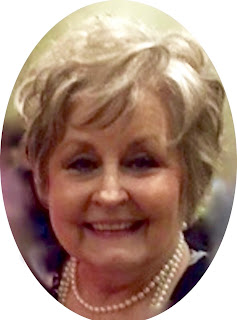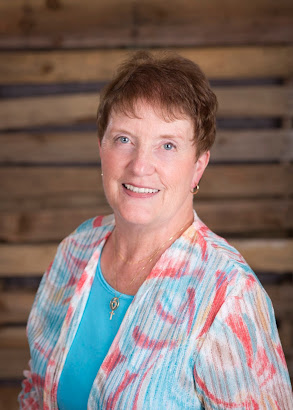The Awakening of Miss Adelaide has arrived-chatting with author Linda Brooks Davis!
Thank you, Linda, for chatting on the blog. I had the pleasure to meet this wonderful lady during her ACFW Carol Award win for her debut novel, The Calling of Ella McFarland. She is a precious lady and a fellow Texan to boot!
Hi, Stacy. Thanks so much for hosting me.
Congratulations, Linda, on your newest novel, The
Awakening of Miss Adelaide, which releases today. Could you please tell us about it?
The Awakening of Miss Adelaide is
Book 3 in the Women of Rock Creek series. Adelaide made a cameo appearance in
the 1905 novel, The Calling of Ella McFarland, and she played an important,
though not leading, role in 1914’s The Mending of Lillian Cathleen. In this
novel, Adelaide had set aside her own dreams of the opera to rear Lily to
eighteen years of age and sent her to college and with the outbreak of World
War I, found herself called upon by her country to support the cause via covert
operations in Europe. Now in The Awakening of Miss Adelaide, set in 1918-1919,
she plays the part of the heroine who uses her position in the opera to serve
as a covert operative. But the bulk of the story happens after the Great War
concludes.
It’s the third book in your Women of Rock Creek series,
is there a faith thread which ties these three books together?
Adelaide doesn’t struggle with
faith the way Lily did, but her life circumstances more than once resulted in
her asking, “Why?” While Ella in The Calling of Ella McFarland was always
certain of her faith even when disheartened and Lily in The Mending of Lillian
Cathleen struggled to believe in the midst of great tragedy and loss,
Adelaide in The Awakening of Miss Adelaide finds herself wondering how
real the faith she has espoused really is.
In your first book, The Calling of Ella McFarland, you
speak on the issues of a woman working in a male-dominated world. Is there a
family member whom this brilliant, fearless character is based upon?
My maternal
grandmother--Mama--was my inspiration for The Calling of Ella McFarland--not
because Ella IS my grandmother but because I asked myself some What if?
Questions: What if Mama had gone to school past third grade? What if she had
had access to funds for a college education? What might she have made of
herself? And whose life might she have touched and in what ways?
I’d say Ella herself is more the personality of my mother, and Ella’s mother Betsy is more the personality of my
grandmother, Mama.
The Calling of Ella McFarland is
absolutely saturated with family memories--many my own--particularly of growing
up on a farm. At family reunions when tales were told, someone would
always say, “Somebody ought to write a book about that.” So I did J
While Ella McFarland longs to be a teacher, your second
book, The Mending of Lillian Cathleen, features a heroine who faces a critical
court decision in a case where she is a star witness. What drives Lillian
Cathleen to have such strength?
Lillian Cathleen has been
horribly abused--the full extent of which isn’t revealed until the end--but her
mother has also been killed by Lillian’s abuser. Her dear, influential
friends--Ella McFarland Evans and Adelaide Fitzgerald--have strong, positive
influences on her to real what she witnessed even though it could ultimately
reveal what she never intended to expose.
I greatly admire historical fiction authors, like
yourself, what goes into making the beautiful books you write? About how many
hours of research do you do? Are there snippets of “real life” woven into your
stories?
I doubt I could estimate
accurately the number of hours of research I’ve devoted to the three books.
Hundreds, for sure. I rarely write a page without stopping to research
something as simple as “Did they use that word in those days?” I’ve been amazed
at how old are some of the words we use in everyday speech. J And, of course, there’s the history. People, places, and
events have to be accurate. I like threading true historical events and people
into the storyline.
We must know, do you have any “must do's” while you
write, special music, snacks? Do you have a cup of coffee or tea?
Yes! I drink coffee in the
morning and tea in the afternoon. And I play classical music and pieces on
YouTube that claims they’re Chopin and Schubert but are really just beautiful
instrumental music that affects me in singular ways. I love Pachabel while
writing too.
Thank you for visiting, you are a delightful and talented
lady, I appreciate the time you’ve taken to chat with us. And again,
congratulations on the arrival of your third book.
You're welcome, Stacy thank you for having me.
Linda has graciously given one fortunate person the choice of an ebook or paperback of any of her three books. Thank you, Linda, for this wonderful prize! Your comment to this post is your entry. We will choose the winner by a random draw on Monday, July 15th. This prize will be awarded to US entries only.
BIO:
Linda
Brooks Davis was born and reared on a farm in Raymondville, a small Rio Grande
Valley community in the southernmost tip of Texas. Linda earned a Bachelor
Degree in Speech Pathology from Abilene Christian University and a Master
Degree from Houston Baptist University. She retired in 2008 after forty years
as a special educator and administrator. Linda and her beloved husband Al
worship and minister at Oak Hills Church in San Antonio and dote on six
grandchildren, three of whom are triplets. Readers may contact Linda through
her website, www.lindabrooksdavis.com.
Linda’s debut novel,
best-selling The Calling of Ella McFarland, Book One in the Women
of Rock Creek series, is set in 1905 Indian Territory prior to Oklahoma
statehood. It won the 2014 Jerry Jenkins Operation First Novel Award. It
subsequently won the ACFW Carol Award for Debut Novel 2016. The sequel novella,
A Christmas to Remember, is set in 1908 Oklahoma and released in
December 2016. A second novella, A Christmas Measure of Love, is
set in 1910. It released in 2017 as a prequel to Linda’s second full-length
novel and Book Two in The Women of Rock Creek series, best-selling The
Mending of Lillian Cathleen, which is set in 1914 and released in
October 2018. Book 3 in The Women of Rock Creek series, The Awakening of
Miss Adelaide, released on July 9, 2019.
Social
Media Links:
Facebook: Linda Brooks Davis,
Author https://www.facebook.com/LindaBrooksDavis/
Twitter: @LBrooksDavis https://twitter.com/LBrooksDavis
Pinterest: ljbd1946 https://www.pinterest.com/ljbd1946/
Instagram: lindadavis1321 https://www.instagram.com/lindadavis1321/
Contact
Links:
Goodreads: http://bit.ly/2pAcX52
Purchase
Links:
The Calling of Ella McFarland:
http://amzn.to/2HyxT64
The
Awakening of Miss Adelaide:
https://amzn.to/2IuScUi
Linda's Inspiration for her beautiful novels:
I grew up knowing my mother’s cedar chest was off limits to me. It contained priceless treasures: Mother’s and Daddy’s wedding suits. An old, tattered quilt. Mother’s felt hat with a jaunty feather at the rolled-up brim. Bible notes. A stained tablecloth. Equally stained ladies’ handkerchiefs. And old crocheted and scorched pot holders.
The dearest items were letters and intricate, painstaking handwork by my paternal great-grandmother while she was committed to an asylum in Terrell, Texas. This dear lady was born Ida Leora McFarland in Sebastian County, Arkansas in 1870. She married George Eben Hancock in 1888 and bore four children. The eldest, my grandmother, Ona Mae Hancock, married George Harmon Brooks in Hall County, Texas in 1911. Their son and my father, Wilson Freeman Brooks, was born in 1914.
Incalculable are the times over the years when a family member would comment Great-granny didn’t appear insane a’tall. And I would wonder how it was she came to be a resident at a state mental hospital from 1900 until her death in 1948. How could an insane person write coherent letters and create such handwork?
Those answers are as shrouded in mystery as Great-grandmother Ida herself. The loss of her mother forced the role of “woman of the house” upon eleven-yr-old Ona—later to be my grandmother—who prepared meals and kept house and helped rear three younger siblings.
Due to a paucity of records, photos, and other documentation, Great-grandmother Ida’s growing-up years are a mystery. We know only that she and her husband married and lived in Indian Territory and Wise County, Texas from 1888 to 1900.
Family legend grew up around Great-grandmother Hancock. We heard all sorts of stories—from “She wasn’t crazy. Her husband wanted to get rid of her” to “She was an Indian who chose the name McFarland to avoid White bias against the indigenous people.” The truth lies somewhere amid the deadfall of her tragic life.
Over forty-eight years of commitment, Ida wrote a handful of letters to her daughter. I am the keeper of those treasures, along with two items of handwork—a baby dress she hand sewed in 1914 for her grandson, my father Wilson; and a table doily in 1920. (See photos)
While researching The Mending of Lillian Cathleen, I came across an article from a 1913 edition of Fort Worth Star-Telegram about a homicide committed in the Metropolitan Hotel’s lobby, the motive for which was adultery. The offending woman had left her husband and skedaddled for Canada with her paramour but was dragged kicking and screaming back home and into a sanitarium for mental disorders. Heightened emotions, lowered common sense, and the control males exerted over females resulted in one man’s murder, another’s acquittal, and a woman’s commitment for “emotional insanity.”
How could I NOT include this morass in a novel?
Could my great-grandmother have been committed unjustly as well?
With an abundance of love and respect for Great-grandmother Ida; her daughter Ona, my Grandmother Brooks; and her grandson, my father, Wilson Brooks, I created letters for this story using Great-grandmother Ida’s hundred-year-old letters to her loved ones as examples. I hope they enhance the imaginary story of one voiceless woman unjustly committed to a mental institution at a time when women’s voices tragically were silenced in public and stifled at home.
The Awakening of Miss Adelaide is a work of fiction in which I continue my mother’s and grandmother’s storytelling tradition through the circumstances of certain characters’ lives, historical realities, and my ancestors’ overcoming of tragedy and loss through faith and grit.






Oh, wow! What a wonderful interview. The characters so diverse. I love that you have family members that merit such honor that you were inspired to write the books.
ReplyDelete